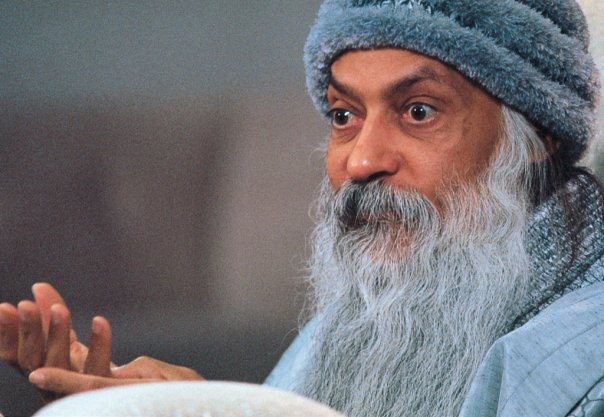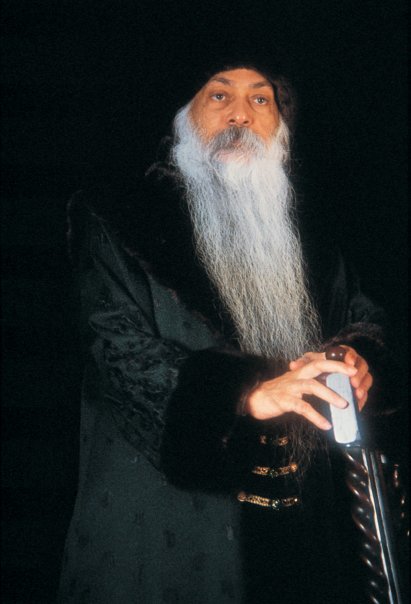Citazioni di Osho sull'inconsapevolezza
- Awareness is virtue, l'inconsapevolezza è peccato.
- La miseria è il simbolo dell'inconsapevolezza; la beatitudine è simbolo di consapevolezza.
- Coscienza significa ricordo, consapevolezza; e il peccato significa inconsapevolezza, dimenticanza.
- L'ego è lo stato di totale inconsapevolezza. La mente ha preso possesso di tutto il tuo essere; si è diffuso come un cancro su di te, nulla è tralasciato. L'ego è il cancro dell'intimo, il cancro dell'anima.
- Ciò che è necessario è: Passa dal sonno al risveglio. Il viaggio è interiore; non da questo posto a quel posto, non da qui all'Himalaya — ma dall'incoscienza alla coscienza, dall'inconsapevolezza alla consapevolezza.
- Awareness is eternal, it knows no death. Only unawareness dies. So if you remain unconscious, asleep, you will have to die again. If you want to get rid of this whole misery of being born and dying again and again, if you want to get rid of the wheel of birth and death, you will have to become absolutely alert. You will have to reach higher and higher into consciousness.
- If you go deeply into Jesus you will understand only one thing: that to act with awareness is virtue and to act with unawareness is sin. Sin is not a quality of any act. Neither is virtue. Sin and virtue belong to the presence or absence of awareness. It is not WHAT you do which is sin or virtue. it is HOW you do it: aware or unaware. It doesn’t depend on the action. Dipende, deep down, on the consciousness — what quality you bring to it.
- There is only one sin and that is unawareness, and only one virtue and that is awareness. Fai qualsiasi cosa tu stia facendo, but remain a witness to it, and immediately the quality of your doing is transformed.
- What is right and what is wrong — dipende. All I can say to you, all I would like you to be aware of is: any act done in awareness is right and any act done in unawareness is wrong. The act does not matter as far as I am concerned, my approach is concerned, my philosophy of life is concerned; the act does not matter, what matters is your consciousness. Are you acting unconsciously or consciously?
- Ricordare, there are two natures. One is when you are asleep; then many things are natural. Qualcuno ti insulta, you become angry, and that is NATURAL — but only in unconsciousness, in sleep. You insult the Buddha, he does not become angry — that is higher nature, a totally different kind of nature. He is functioning from a different center altogether. He may feel compassion for you, not anger. He functions through awareness, you function through unawareness.
- Ricordare, la meditazione non è qualcosa che viene fatto dalla mente, è l'assenza della mente. Quando la mente smette di meditare accade. Non è qualcosa fuori dalla mente, è qualcosa al di là della mente. E ogni volta che sei vigile, la mente no. Quindi possiamo concludere che la tua sonnolenza è la tua mente, la tua inconsapevolezza è la tua mente, il tuo sonnambulismo è la tua mente. Ti muovi come se fossi ubriaco, Non sapendo chi sei, non sapere dove stai andando, non sapendo perché stai andando.
- Our consciousness is in a deep bondage; we are chained. Inside is our prison, not outside. The walls of the prison are not outside us; it exists deep in our unconscious. It exists in our instincts, it exists in our desires, it exists in our unawareness. Freedom is the goal. Awareness is the method to reach that goal.
- Either you can think or you can watch your breathing. You can’t do both together. Breathing and thinking are such processes that only one can exist in you — in awareness. In unawareness, both can continue: you can go on breathing and you can go on thinking. But if you become aware, either you can think or you can breathe; and when you breathe with awareness, thinking disappears. Your whole consciousness becomes focused on breathing. And breathing is such a simple process: you need not do it, it is already happening. You can just bring your consciousness to it.
- La miseria è l'ombra della mente: mente significa dormire, mente significa incoscienza, mente significa inconsapevolezza. Mente significa non sapere chi sei e continuare a fingere di sapere. Mente significa non sapere dove stai andando e fingere ancora di conoscere l'obiettivo, che sai a cosa serve la vita — non sapendo nulla della vita e credendo ancora di sapere.
- Bring your whole mind to light and you will see — all that is miserable starts dying, and all that is beautiful and blissful starts sprouting. In the light of consciousness, that which remains is good, and that which dies is bad. That’s my definition of sin and virtue. Virtue is that which can grow with absolute awareness; there is no difficulty. Sin is that which cannot grow with awareness; it needs unawareness to grow. Unawareness is a must for it.
- Misery is caused by your unawareness, bliss is caused by your awareness; and between the unaware mind and the aware mind is the whole of life — the world and nirvana. Unconscious you are in the world conscious you are in nirvana. Unconscious you belong to Caesar, conscious you belong to Christ. You are the same person, and the energy that becomes conscious or remains unconscious is also the same. When consciousness is asleep — it is unconscious. It can be provoked, it can be brought to awareness, it can burn as a bright light. Consciousness burning like a flame, like a bright light, is bodha. And when your whole being becomes full of light you have become awareness. That’s why Siddharth Gautama is called Buddha; the name comes from the root ‘bodha’. Bodha is the process, buddha is the ultimate result.



